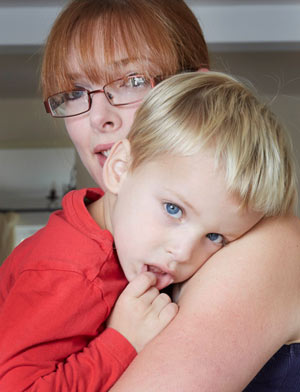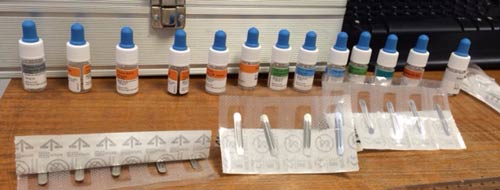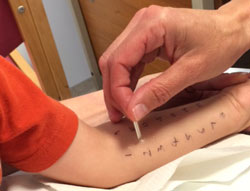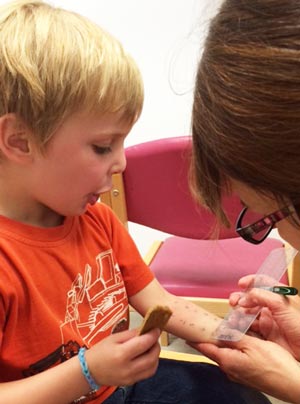|
|
How to have a successful allergy testing appointment |
Nathalie and Callum have attended more allergy testing appointments than they have had hot breakfasts! Nathalie gives her tips on how best to get through them successfully. |

Let’s be honest, having allergies is hard work, and can take up a lot more time than people realise. I’d even go so far as to say that the allergy world is a busy one! It’s packed full of medication, food diaries, symptom checking and regular contact with health care professionals. And then there’s the food shopping and label reading. When you’re new to it, the shopping can take a lot longer as you learn to get used to the new things to look out for and to be aware of. Every 6-12 months, depending on the severity of the allergies there’s a particular appointment: an allergy testing appointment, comprising of SPT (skin prick test) and RAST (radioallergosorbent test) testing to determine whether there has been any improvement in the level of severity. I know a lot of people dread these allergy testing appointments. You’ve spent all this time fighting to even get an appointment, but then when they actually come round you have to battle with the demons in your head. You know that the truth will be recognised, and your concerns about allergies are likely to be confirmed. The 1st allergy testing appointment You spend months diligently writing a food diary, making note of every single reaction and symptom. Being cautious of anything that is consumed for fear of causing another reaction and ultimately discomfort in your little one. There’s this fear of attending, but also a flutter of hope that finally you will have answers, and will be able to move forward with solutions. But it’s a fine line between the flutter and the fear. In the lead up to Callum’s first appointment I couldn’t sleep. We knew that there was something seriously wrong, but without proof, and without a medical professional confirming it, it wasn’t ‘real’. I’m not going to dress it up, that first appointment was hard. 
Prep-ing for the appointment For the allergy testing to work, you are required to stop the use of antihistamines, so that the results aren’t compromised in any way. I have to stop Callum’s a week before, and to prep him for having his repeat allergy testing in hospital. To make it as easy as possible for Callum, we always prepare him for what is coming. He’s a brave soldier, and always takes everything in his stride, but as he gets older, he becomes much more aware of what is going on, remembers how things feel, and any associated discomfort. In Callum’s case, his take place around the same time each year, at the beginning of September. Most allergy parents and sufferers will agree that allergy testing is a necessary evil for us to have to get through. It has to be done, there’s no doubt about it. We need to know whether things are changing for the better, or for the worse, so that we can alter Callum’s diet accordingly. Each year we have a smidgen of hope that things will have improved in some areas, so that we can start to reintroduce things to his diet. Realistically it’s highly unlikely that this will happen as his allergies are on the severe side of things. But hey, positive thinking and all that. To get the most out of these appointments, do your homework! Ultimately, to make a success of these appointments, you need to work as a team with the consultant. They should know your little one’s history inside out, know what’s worked previously, be fully aware of other issues and concerns, and pre-empt any possible questions you have. The appointments in our region, usually run in the following way:

Callum knows the medical team really well now, they’ve been caring for him since he was 16 months, and they know how he reacts to stuff. He feels safe with them, and I am confident in their care. He now knows what comes during the testing process, and he quite likes the bit where they write the numbers correlating to the allergens being tested on his arm. In his words ‘it tickles mummy’. 
They start by dropping a bit of the histamine control solution, and then the skin needs to be scored, to pierce it, so that the skin is broken. This is then repeated for each subsequent allergen being tested. Once all the tests have been administered, you are sent out to the waiting room to wait the 15 minutes to allow the tests to work. It’s a fairly quick process to go through, and will give a better understanding of the situation. For a definitive result, it’s always good to cross reference with the results of a RAST test, done during the blood test process. It can be a long day, so I’ve got a few top tips that may help you!
Callum knows that each time we go to the hospital, he will get a magazine for a simple consultant appointment. April 2017 Ed. In some allergy clinics the experience is greatly improved for the children by offering them an Allergy Passport. More articles on the management of allergy in children and in schools |












